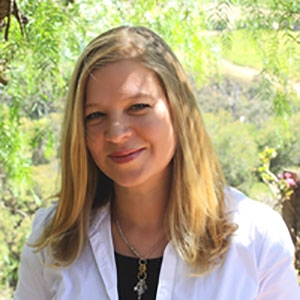New Geelong cultural trail to build social cohesion
Research news
Geelong is set to gain a new cultural walking trail in Norlane and Corio, through an innovative project that aims to improve cohesiveness and connection for Koori youth and young people from culturally and linguistically diverse (CALD) groups.
The Community, Culture and Connections Project was recently awarded a $200,000 grant by the Department of Justice and Regulation.
Its target groups live in an area with high unemployment levels, low education levels and low household incomes, where there are also issues of racism, discrimination and negative stereotypes that are causing conflict at the local level.
The trail will tell a story of “history of country” from the time of Australia’s First Nation People, European settlement (including and acknowledging the Stolen Generation), Post-World War II immigration, to the new arrivals of today.
Deakin’s Dr Fiona Gray, a Postdoctoral Research Fellow within the Centre for Regional and Rural Futures, has worked with project partners to develop the concept and will oversee data collection and analysis of outcomes as the project proceeds.
“By strengthening sense of place and cultural identity, this project will provide protective factors for participants, who are at risk of disengaging from education and may be at risk of entering the justice system,” she explained.
An architect for over 20 years, Dr Gray first established connections with the Wathaurong people when she co-designed Bunjil’s Lookout at the Maude Recreation Reserve. She has written a number of papers on urban planning of public places in the Geelong region.
The one-and-a-half kilometre trail will border the Wathaurong Aboriginal Co-operative building, leading north to the Diversitat Northern HUB – the former site of the post-war migrant settlement huts and the DW Hope Centre.
Originating in the 1970s, the “placemaking” concept takes a multi-faceted approach to the planning and design of public spaces, capitalising on assets within a community to create public spaces that promote health and wellbeing.
“The effectiveness of this approach is gaining much wider acceptance,” said Dr Gray.
“It offers a holistic way of looking at community wellbeing and crime prevention – acknowledging that environment can affect the way people behave. The physical characteristics affect the psychology of a place and can create a sense of pride, connection and motivation.
“The focus on consultation and engagement allows benefits to flow through to participants’ social networks and families, and the broader community.”
Over a two-year period, around 30 participants, aged 12-18 years, will lead construction and design, with guidance and assistance from project partners, mentors, elders and creatives who will be engaged in the project.
Led by the City of Greater Geelong, the project involves 11 partners, including Deakin, Diversitat, Wathaurong Aboriginal Cooperative, Department of Justice and Regulation Barwon South West, Department of Health and Human Services, Northern Bay P-12 Secondary, North Geelong Secondary College and Northern Futures, the Geelong Region Local Learning and Employment Network and the Commonwealth Department of Employment.
Share this story
 Placemaker: Dr Fiona Gray, a Postdoctoral Research Fellow within the Centre for Regional and Rural Futures, will support the development of an arts trail in Norlane/Corio.
Placemaker: Dr Fiona Gray, a Postdoctoral Research Fellow within the Centre for Regional and Rural Futures, will support the development of an arts trail in Norlane/Corio.
